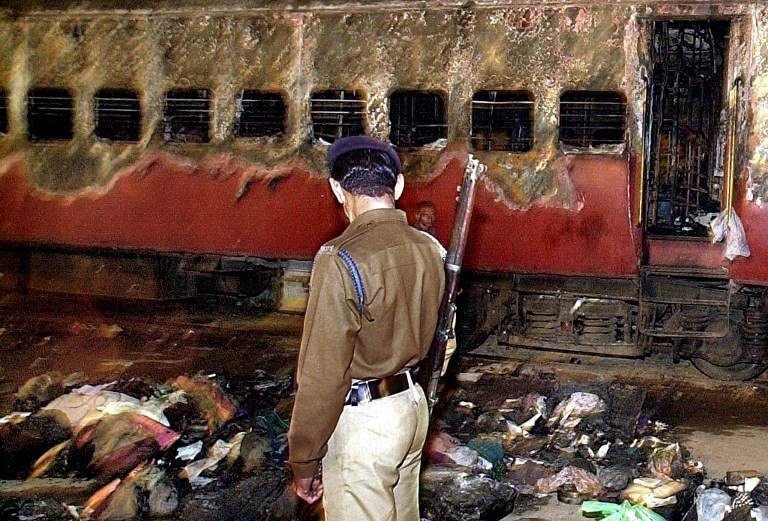On Monday, Gujarat High Court commuted the death sentence of 11 convicts to life imprisonment in the 2002 Godhra train burning case. This verdict comes two years after the completion of the hearings on the case.
A division bench of justices AS Dave and GR Udhaari upheld the life term for 20 other accused. It also refused to modify the verdict for 63 people who had been acquitted previously.

We look at the timeline of the events of this historical case:
February 27, 2002: A Sabarmati Express coach was set ablaze, which killed 59 people, primarily “kar sevaks” returning from Ayodhya in Uttar Pradesh. The episode triggered communal riots across the state, claiming approximately 1,000 lives. Thousands were rendered homeless and some went missing after riots broke out for three days after the episode.
February 28, 2002: Blaming the Muslim community for the train fire, Hindu mobs went on a rampage that led to two of the biggest massacres, one in Naroda Patiya – where over 90 people were killed – and the other at Gulbarg Society, which claimed the lives of 69 people.
March 6, 2002: The Nanavati-Mehta Commission was appointed to probe into the train burning incident. It was later also directed to investigate the violence that broke out in Gujarat. The commission later declared that the carnage was not an accident and that the train had been set on fire.

2004: Due to Supreme Court’s intervention, 2,000 cases are reopened and special police teams were formed. Few trials were transferred out of Gujarat leading to hundreds of convictions. Human rights activists also claimed that the approach of the prosecution was influenced by the Narendra Modi government.
March 1, 2011: A special SIT court convicted 31 people out of the 94 suspects and acquitted 63. The death sentence was pronounced for 11 of the accused and 20 were given life terms. Among those acquitted, included prime suspect, Maulana Umarji and then president of Godhra municipality Mohammad Kalota, among others.
February 8, 2012: The SIT filed a closure report absolving Prime Minister Narendra Modi, who was accused of not doing everything in his power to prevent the riots and loss of lives.
In case of burning Sabarmati Express killing 59 Hindu Kar sevaks in Godhra,Gujarat HC verdict today on appeals of 2002 convicts. #Godhra pic.twitter.com/ghdMq4dpre
— Geetika Swami (@SwamiGeetika) October 9, 2017
Over the years, several appeals have been filed in the high court, challenging the convictions and the acquittal.
October 9, 2017: Gujarat HC commutes death sentences of 11 convicts to life imprisonment.
(Information for the timeline has been sourced from Hindustan Times, NDTV, New York Times & The Times of India)

















